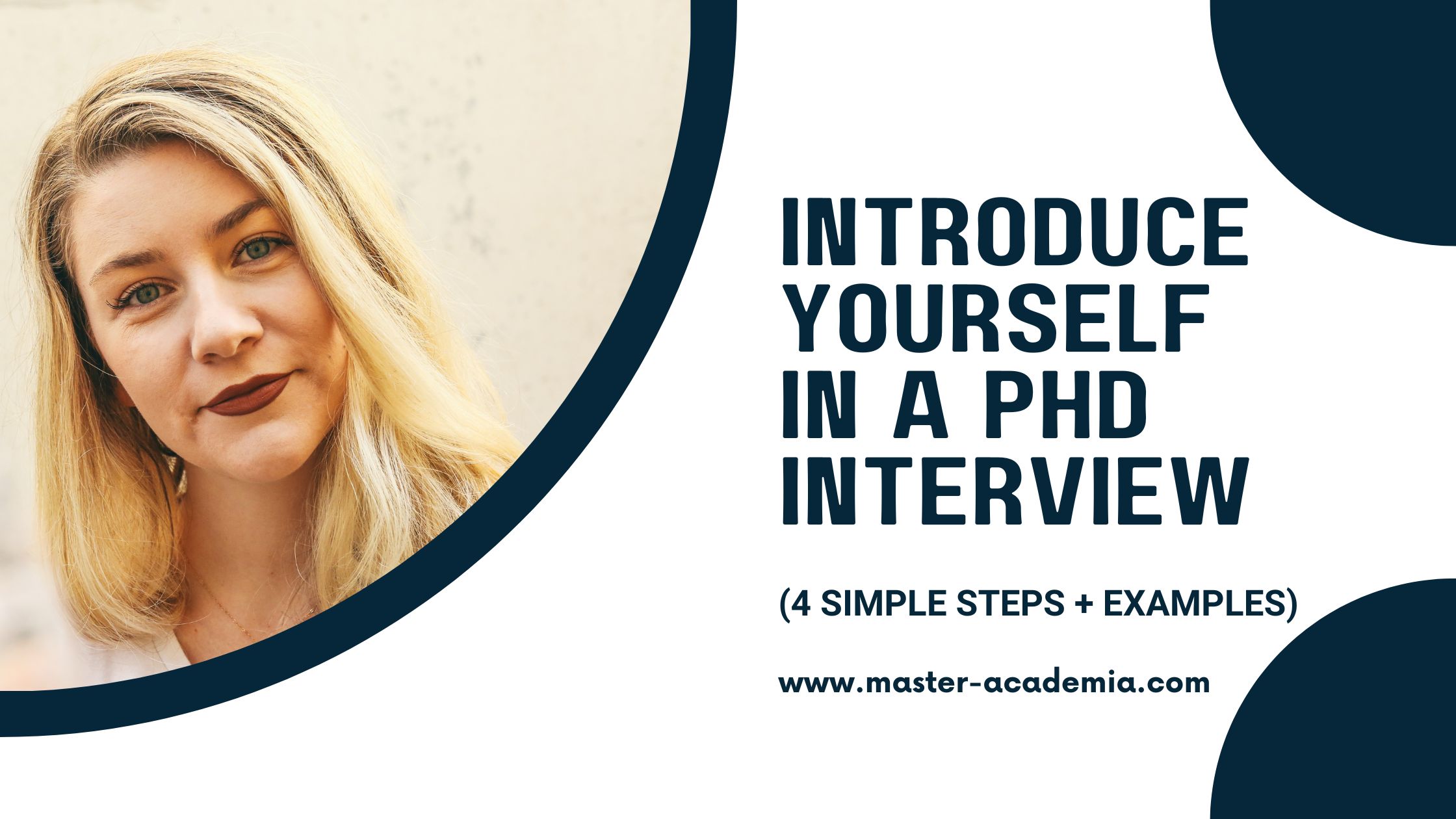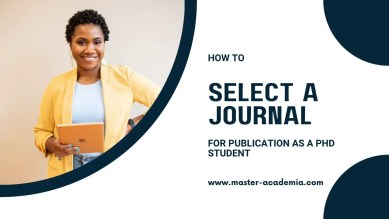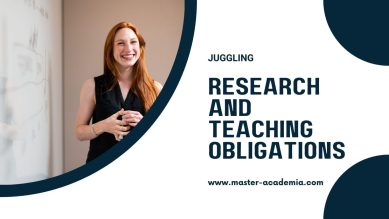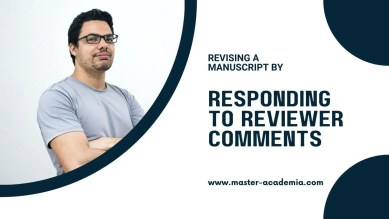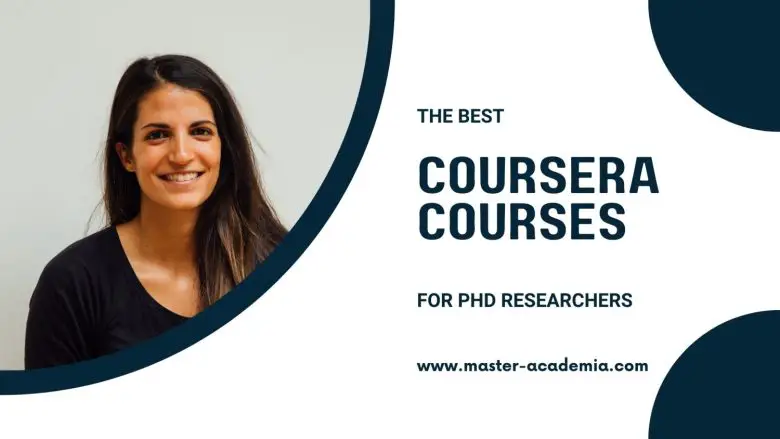
Online courses can greatly benefit PhD students. However, the vast number of available courses can be overwhelming and makes it hard to choose. Therefore, this list contains the best online courses provided on Coursera that are relevant to PhD researchers in 2023. Furthermore, a justification is provided for each course on why it is relevant for PhD researchers.
Disclosure: This post contains affiliate links, which means I may earn a small commission if you make a purchase using the links below at no additional cost to you.
Contents
Online courses for PhD students on mental health and well-being
The Science of Well-Being (Yale University)

Official description: In this course you will engage in a series of challenges designed to increase your own happiness and build more productive habits. As preparation for these tasks, Professor Laurie Santos reveals misconceptions about happiness, annoying features of the mind that lead us to think the way we do, and the research that can help us change. You will ultimately be prepared to successfully incorporate a specific wellness activity into your life.
Time commitment: approx. 19 hours
Rating: 4.9/5 (based on 34,917 ratings)
Certificate: You can earn a Certificate upon completion.
Relevance for PhD students: It is no secret that many PhD students struggle with mental health challenges such as anxiety and depression. Furthermore, many PhD students find it difficult to switch off from work and take proper breaks. Exploring misconceptions and expectations about happiness as well as learning about concrete measures to increase your well-being can be extremely useful as a PhD researcher who struggles to take care of your needs.
Build Personal Resilience (Macquarie University)

Official description: Globalisation and advances in information and communication technology have resulted in a 24/7 work environment characterised by rapid change, a greater sense of competition, and an explosion in access to communication and information. These pressures compound stress related to workload and information processing – this not only reduces performance but can lead to a reduced sense of meaning and purpose as well as physical and mental health issues. Understanding stress and how to boost your resilience to it are essential skills for contemporary leaders and play a vital role in managing the demands you face at work. This course will focus on the nature of stressors facing leaders in today’s work environments and how to deal with them. You’ll explore personal resilience – your capacity to withstand and cope with stress – and strategies for self-management, motivation and organisation. You’ll also learn how resilience is impacted by health and social relationships.
Time commitment: approx. 17 hours
Rating: 4.8/5 (based on 861 ratings)
Certificate: You can earn a Certificate upon completion.
Relevance for PhD students: Experiencing ‘failures’ is a normal part of academic life, but it can be particularly challenging for PhD researchers to get over setbacks and disappointments. Additionally, a PhD can be a very stressful experience as it often involves very individual and personal work, which is regularly scrutinised. Therefore, this course can help PhD researchers become more aware of their experiences and sources of stress, while it helps them to implement concrete strategies to deal with it more effectively.
You may also like: Stress levels – PhD versus non-academic full-time job
Online courses for PhD students on academic writing
Writing in the Sciences (Stanford University)

Official course description: This course teaches scientists to become more effective writers, using practical examples and exercises. Topics include: principles of good writing, tricks for writing faster and with less anxiety, the format of a scientific manuscript, peer review, grant writing, ethical issues in scientific publication, and writing for general audiences.
Time commitment: Approx. 30 hours
Rating: 4.9/5 (based on 7,284 ratings)
Certificate: You can earn a certificate upon completion.
Relevance for PhD students: The ability to master academic writing can make or break a PhD student’s career in academia. The good news is that academic writing can be learned! This course covers a wide range of topics, such as cutting clutter from writing, and using strong verbs, and sentence and paragraph structures. It also dives into the actual writing process. Highly recommended to all PhD researchers who struggle with academic writing!
Advanced Writing (University of California, Irvine)

Official course description: By raising your level of academic writing, this course helps prepare you for college-level work. After completing this course, you will be able to: plan and write a more sophisticated argument essay; identify plagiarism and explain how to prevent it; read and analyze several articles to form your own opinion on a topic; make connections between several articles; form thesis statements from your readings; use sources effectively when writing an essay.
Time commitment: Approx. 20 hours
Rating: 4.7/5 (based on 1,787 ratings)
Certificate: You can earn a certificate upon completion.
Relevance for PhD students: This course differs from the previous one by paying particular attention to using and analysing academic texts and developing your own argumentations in academic writing. The course description states that the course helps you to prepare for college-level work. However, if you are a PhD researcher who struggles to develop strong arguments in your academic writing, or if you come from a context where argumentative writing was not taught, this course is for you.
Online courses for PhD students on research methods
Understanding Research Methods (University of London)

Official course description: This Massive Open Online Course is about demystifying research and research methods. It will outline the fundamentals of doing research, aimed primarily, but not exclusively, at the postgraduate level. […] The course will appeal to those of you who require an understanding of research approaches and skills, and importantly an ability to deploy them in your studies or in your professional lives. In particular, this course will aid those of you who have to conduct research as part of your postgraduate studies but do not perhaps have access to research methods courses, or for those of you who feel you would like additional support for self-improvement.
Time commitment: Approx. 6 hours
Rating: 4.6/5 (based on 6,459 ratings)
Certificate: You can earn a certificate upon completion.
Relevance for PhD students: Many PhD researchers receive training on research methods as part of their PhD programme, but not all. If you need don’t have access to a course at your university but need a good overview of research methods, this 6-hour course is a good time investment! It covers aspects ranging from the development of good research questions to the point of a literature review and the importance of time planning.
Uncertainty and Research (Johns Hopkins University)

Official course description: This course teaches the fundamentals of scientific research. We approach the research process as a means of systematically reducing uncertainty and demonstrate how conducting a scientific investigation can be posed as an exercise in Bayesian uncertainty quantification. We begin by exploring the scientific landscape to understand the different types of research, where they are conducted, how they are supported, and why each of these types of research is important. We then formalize scientific inquiry and the scientific method and elaborate the research process and its scientific merits. Basic concepts in probability theory are introduced leading to a conceptually simple presentation of Bayes’ Rule. We then illustrate how Bayes’ Rule provides a mathematical framework for the research process. We place an emphasis on the role that research plays in our daily and professional lives and how research skills can help us think critically, whether you’re in a technical field or not. Exercises are designed to help you improve your research skills and think more scientifically.
Time commitment: Approx. 15 hours
Rating: Not available.
Certificate: You can earn a certificate upon completion.
Relevance for PhD students: This course provides more in-depth knowledge of the scientific research, its different types and methods. On the one hand, it covers more fundamental questions on scientific inquiry (such as ‘What makes an investigation scientific?). On the other hand, it breaks down the actual research process into concrete steps and goes deeper into modelling uncertainties and probabilities. While this course can be very inspirational for all PhD researchers, particularly those who target quantitative studies can benefit from this course!
Online courses for PhD students on productivity
Work Smarter, Not Harder: Time Management for Personal & Professional Productivity (University of California, Irvine)

Official course description: You will be able to gain and apply your knowledge and understanding of personal and professional awareness, organization and commitment, and use the tools, methods and techniques that you have learned in goal setting, prioritization, scheduling, and delegation to overcome time management challenges and enhance productivity. Upon completing this course, you will be able to: 1. Learn to plan effectively to achieve your personal and professional goals 2. Learn to recognize and overcome barriers to successful time management 3. Identify specific time management tools and use them effectively 4. Manage resources both effectively and efficiently 5. Keep your sense of perspective to prevent and manage crises 6. Learn to delegate effectively 7. Learn to manage expectations and say “No” when appropriate.
Time commitment: Approx. 10 hours
Rating: 4.5/5 (based on 14,540 ratings)
Certificate: You can earn a certificate upon completion.
Relevance for PhD students: There are only 24 hours in the day, also for PhD students. Most of them already work very hard. Thus, learning how to work smarter instead of harder is a crucial skill for PhD researchers. Completing a PhD and fulfilling all the requirements and expectations that go along with it requires you to use your time effectively. This course is full of valuable information, including expectation management and saying “No” sometimes! (The course is part of a career success specialisation but can also be taken independently.)
Project Initiation: Starting a Successful Project (Google)

Official course description: This is the second course in the Google Project Management Certificate program. This course will show you how to set a project up for success in the first phase of the project life cycle: the project initiation phase. In exploring the key components of this phase, you’ll learn how to define and manage project goals, deliverables, scope, and success criteria. You’ll discover how to use tools and templates like stakeholder analysis grids and project charters to help you set project expectations and communicate roles and responsibilities. Current Google project managers will continue to instruct and provide you with hands-on approaches for accomplishing these tasks while showing you the best project management tools and resources for the job at hand.
Time commitment: Approx. 22 hours
Rating: 4.8/5 (based on 12,242 ratings)
Certificate: You can earn a certificate upon completion.
Relevance for PhD students: This course may come as a surprise, especially because it is provided by Google instead of a university. But think about it: Doing a PhD essentially means that the PhD researcher is the project manager who has to set up and implement a complex project! Therefore, gaining knowledge on how to successfully start a project, plan and divide it into concrete and achievable deliverables can be a complete game changer in a PhD researcher’s journey.
Online course for PhD students on science communication
Designing Effective Science Communication (University of Colorado Boulder)

Official course description: This course is designed for scientists, science educators, and science communicators who are interested in re-thinking how we communicate science to diverse audiences, particularly to the general public. Topics include evidence-based considerations of human learning as well as effective communication through a variety of modalities, including oral presentations, written forms of communication, technology, and artistic media. The objective of this course is to equip learners with the skills needed to design and implement effective methods of science communication. Learners will be able to identify key principles of human learning that undergird science communication, describe pitfalls in “popular” avenues for science outreach, and apply best practices to science communication in a variety of media.
Time commitment: Approx. 11 hours to complete
Rating: 4.5/5 (based on 19 ratings)
Certificate: You can earn a certificate upon completion.
Relevance for PhD students: Sharing and disseminating research becomes increasingly important in academia. Therefore, PhD researchers should spend some time learning effective communication strategies early on! Being familiar with processes and methods of science communication helps PhD researchers to have a larger societal impact, and it increases their employment opportunities.
